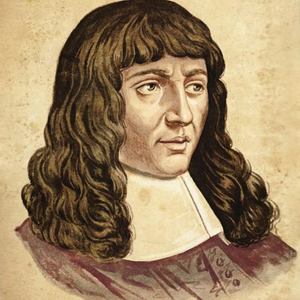
| Trackimage | Playbut | Trackname | Playbut | Trackname |
|---|---|---|---|---|
| 82454616 | Play | Allemande | 00:00 Tools | |
| 82454617 | Play | O salutarius hostia | 00:00 Tools | |
| 82454619 | Play | Pavane | 00:00 Tools | |
| 82454618 | Play | Magnificat du premier Ton | 00:00 Tools | |
| 82454620 | Play | Dialogus de anima | 00:00 Tools | |
| 82454621 | Play | Ecce iste venit | 00:00 Tools | |
| 82454622 | Play | Super flumina Babylonis - Pasaume CXXXVI | 00:00 Tools | |
| 82454623 | Play | Allemande grave | 00:00 Tools | |
| 82454624 | Play | Nisi Dominus (Psalm 115) | 00:00 Tools | |
| 82454625 | Play | Super flumina Babylonis | 00:00 Tools | |
| 82454626 | Play | Dialogus de anima: Choeur à 3 et récit de Basse | 00:00 Tools | |
| 82454627 | Play | Benedic anima mea - Psaume CII | 00:00 Tools | |
| 82454630 | Play | Memorare | 00:00 Tools | |
| 82454628 | Play | Magnificat: Et exultavit | 00:00 Tools | |
| 82454629 | Play | Dialogus de anima: Duo | 00:00 Tools | |
| 82454631 | Play | Magnificat: Deposuit potentes | 00:00 Tools | |
| 82454632 | Play | Super flumina Babylonis: Super flumina Babylonis | 00:00 Tools | |
| 82454633 | Play | Dialogus de anima: Choeur à 3 voix | 00:00 Tools | |
| 82454634 | Play | Nisi dominus | 00:00 Tools | |
| 82454635 | Play | Pavane de Mr. Dumont | 00:00 Tools | |
| 82454637 | Play | Dialogus de anima: Choeur à 5 | 00:00 Tools | |
| 82454638 | Play | II. Allemande | 00:00 Tools | |
| 82454636 | Play | I. Pavanne | 00:00 Tools | |
| 82454639 | Play | Super flumina Babylonis: Quia illic | 00:00 Tools | |
| 82454640 | Play | Benedic anima mea (Psaume CII) | 00:00 Tools | |
| 82454641 | Play | Allemande grave in C major [Bauyn Manuscript] | 00:00 Tools | |
| 82454642 | Play | Magnificat: Magnificat | 00:00 Tools | |
| 82454643 | Play | Adoro te | 00:00 Tools | |
| 82454644 | Play | Magnificat: Suscepit Israel | 00:00 Tools | |
| 82454645 | Play | Super flumina Babylonis: Quodmodo cantabimus | 00:00 Tools | |
| 82454646 | Play | Allemande in C major [Bauyn Manuscript] | 00:00 Tools | |
| 82454647 | Play | Dialogus de anima: Symphonie | 00:00 Tools | |
| 82454648 | Play | III. Allemande | 00:00 Tools | |
| 82454649 | Play | Magnificat | 00:00 Tools | |
| 82454650 | Play | Quid commisisti | 00:00 Tools |

-
- 3,795
- plays
-
- 1,156
- listners
-
- 3795
- top track count
Henri Dumont (also Henry Du Mont, originally Henry de Thier) (1610 - May 8, 1684) was a Franco-Belgian composer. Dumont was born to Henry de Thier and Elisabeth Orban in Looz (Borgloon). The family moved in 1613 to Maastricht, where Henri and his brother Lambert were choirboys at the church of Notre-Dame. In 1630 he was named organist and given a leave of two months to complete his education. In the principality of Liège (where he spend much of his time) he studied with Léonard de Hodémont (1575-1639), absorbing trends from Italy. On December 1, 1632, he resigned in favor of his brother. In 1639 he went to Paris to become organist at the important parish church of Saint-Paul. From this time he used the name Dumont or Du Mont in place of De Thier. From 1652 he was harpsichordist at the court of the Duke of Anjou (Philippe I, Duke of Orléans, a brother of Louis XIV), and in 1660 he obtained that post to the young queen Marie-Thérèse. In 1663 he became "maitre" of the Chapelle Royale in Versailles, in 1672 he became "Sous-maître de la musique du Roy" (with Pierre Robert) and 1673 became Master of the Queen's Music. Dumont was married (1653) to Mechthild Loyens, daughter of the mayor of Maastricht. As a widower he acquired the substantial benefice of the abbey of Silly near Lisieux in Normandy. In 1683 he resigned the last of his posts and died a year later in Paris. With the exception of a few songs and the instrumental pieces in the 1657 Meslanges, Dumont was a composer of religious music. His output includes nearly a hundred "Petits Motets", the principal French genre of his time; his illustrious successors were Jean-Baptiste Lully and François Couperin. Du Mont was the first to publish separate continuo partbooks in France. Read more on Last.fm. User-contributed text is available under the Creative Commons By-SA License; additional terms may apply.